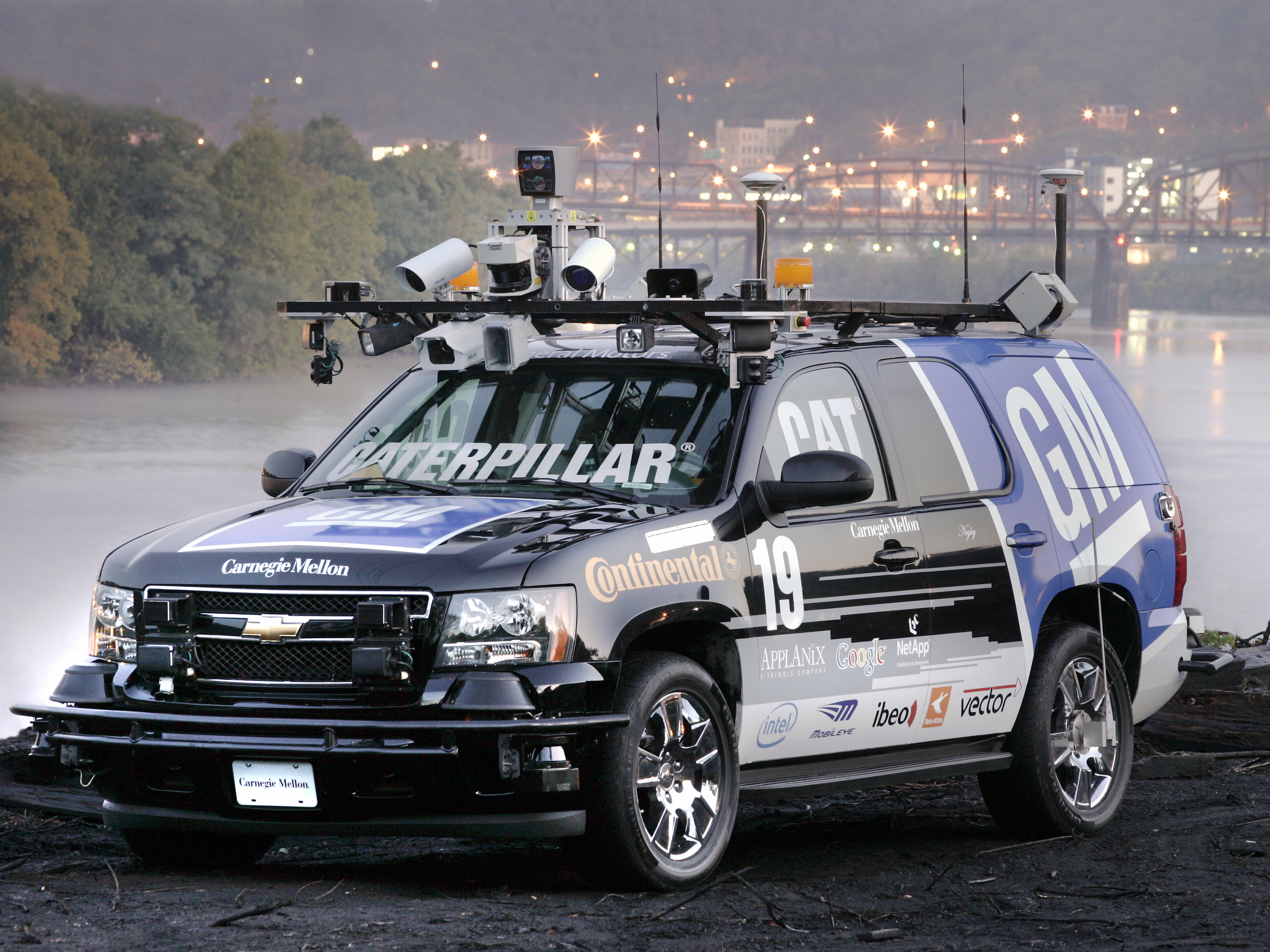Robot car drives 60 miles to win $2m prize

If you thought Michael Knight was the only man who has a car with a mind of its own, you'd be wrong. An artificially intelligent, unmanned Chevy Tahoe has just won the 60 mile DARPA Urban Challenge race and scooped a $2m prize.
The rules of the race are simple: build a robot car that can negotiate a 60 mile urban area course on its own, whilst obeying all traffic regulations and laws. The robot cars also had to negotiate traffic and obstacles whilst avoiding all the other entrants in the race.
Super-computers
The race was won by team Tartan Racing, a collaboration between Carnegie Mellon University and General Motors.
The winning car, named 'boss', uses 19 sensors of six types to perceive its surroundings. Software running on 10 Intel Core2Duo blade computers uses the sensor input to build a model of the car's environment and to choose an appropriate set of actions for each road and traffic situation.
One of the team's advantages during development was a software system it created called TROCS. This produced graphic animations of Boss's sensor and data inputs during each run. TROCS enabled Tartan Racing to understand what Boss saw as it drove and how and why it responded to its environment.
Powerful software
Troublesome behaviours could be quickly identified and fixed, while appropriate behaviours, which might occasionally look odd to an observer, were left untouched.
"Robots sometimes stun the world, inspire a lot of people and change the belief of what is possible," said William "Red" Whittaker, a Carnegie Mellon robotics professor and team leader of Tartan Racing.
Sign up for breaking news, reviews, opinion, top tech deals, and more.
"We've seen that here and once the perception of what's possible changes it never goes back. This is a phenomenal thing for robotics. This is really a fantastic accomplishment.
"I watched these things driving and I forgot after a while that there was nobody in there."
He also said that autonomous driving technology will soon be saving lives on the battlefield by removing soldiers from supply convoys and other vehicles in harm's way.

James was part of the TechRadar editorial team for eight years up until 2015 and now works in a senior position for TR's parent company Future. An experienced Content Director with a demonstrated history of working in the media production industry. Skilled in Search Engine Optimization (SEO), E-commerce Optimization, Journalism, Digital Marketing, and Social Media. James can do it all.